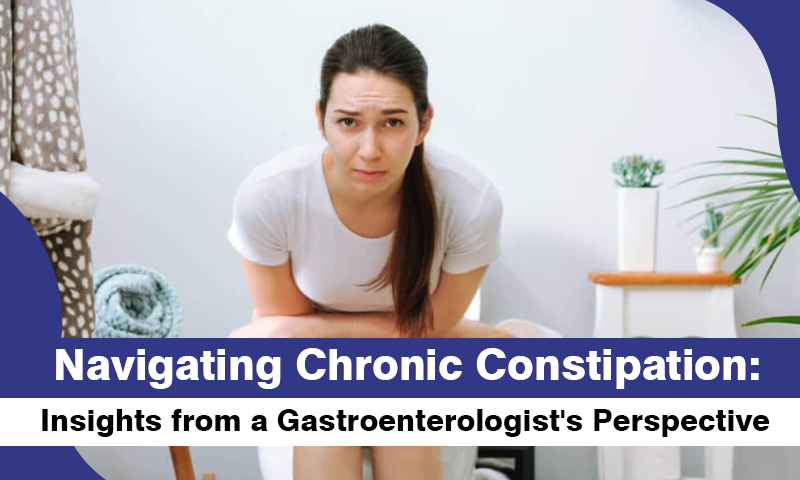Understanding Ulcerative Colitis: Symptoms, Types, and Treatment

What is fatty liver disease?
May 11, 2021
What are Gallstones? Know Causes, Symptoms, Risk Factors, Diagnosis, Tests & Treatment
May 27, 2021Ulcerative colitis (UC) is an inflammatory bowel disease characterised by irritation, inflammation, and ulcers within the lining of the intestine, also known as the colon. It is a controllable condition, and many individuals experience symptoms intermittently. Similar to managing blood pressure and diabetes, UC can be effectively controlled.
Causes and Risk Factors of Ulcerative Colitis
UC occurs when the immune system mistakenly attacks the body's own tissues. In this case, the immune system targets food, beneficial gut bacteria, and the cells lining the colon as invaders. This results in inflammation and the formation of ulcers.
While the exact cause of UC remains uncertain, genetics may play a role, as the disease tends to run in families. Certain risk factors can influence the likelihood of developing colitis, such as:
- Age: Individuals between 15 and 30 years old or older than 60 have a higher risk.
- Ethnicity: People of Ashkenazi Jewish descent are at a greater risk.
- Family history: Having a close relative with the condition can increase the risk by up to 30%.
- Triggers: Although food and stress do not cause UC, they can trigger symptom flares.
Types of Ulcerative Colitis
The type of UC an individual experiences depends on the location within the colon:
Ulcerative Proctitis: This is the mildest form, confined to the rectum. Rectal bleeding is a common symptom.
Proctosigmoiditis: Affects the rectum and the lower end of the colon (sigmoid colon). Symptoms include bloody diarrhea, belly cramps, and tenesmus (the urge to poop without being able to).

Left-Sided Colitis: Causes cramps on the left side of the abdomen and inflammation from the rectum up through the left side of the colon.
Pancolitis: Affects the entire colon, leading to severe bouts of bloody diarrhea, belly cramps, pain, fatigue, and weight loss.
Acute Severe Ulcerative Colitis: A rare form that affects the entire colon and causes severe pain, heavy diarrhea, bleeding, and fever.
Symptoms of Ulcerative Colitis
The primary symptom of UC is bloody diarrhea, sometimes accompanied by pus in the stools. Other common symptoms include:
- Cramping belly pain
- Sudden urges to poop
- Loss of appetite
- Weight loss
- Fatigue
- Fever
- Dehydration
- Joint pain or soreness
- Canker sores
- Skin sores
- Eye pain when exposed to bright light
- Anemia (too few red blood cells)
- Feeling of incomplete bowel emptying
- Nighttime bowel movements
- Inability to control stool
- Pain or bleeding during bowel movements
Symptoms can fluctuate, with periods of remission where no symptoms are present.

Diagnosing Ulcerative Colitis
To differentiate UC from other gut diseases, doctors use various tests:
Blood Tests: To check for anemia and inflammation.
Stool Samples: To rule out infections or parasites and detect hidden blood in the stool.
Flexible Sigmoidoscopy: A procedure that examines the lower part of the colon using a bendable tube with a camera and light, often accompanied by a biopsy for further evaluation.
Colonoscopy: Similar to sigmoidoscopy but examines the entire colon.
X-Rays: Less common but may be used in specific cases.
Treatment of Ulcerative Colitis
The primary goals of UC treatment are symptom relief and healing of the colon, as well as preventing future flare-ups. The treatment may involve a combination of dietary changes, medications, and, in severe cases, surgery.

Diet: Certain foods can exacerbate symptoms, and a soft, bland diet may be recommended. Avoiding dairy products if lactose intolerant and consuming fiber-rich foods, lean proteins, fruits, and vegetables is advised.
Medication: Different types of drugs may be prescribed, including antibiotics, aminosalicylates (containing 5-aminosalicylic acid for inflammation control), corticosteroids (anti-inflammatory drugs), immunomodulators (to suppress immune attacks), and biologics (proteins to manage severe UC).
Surgery: If other treatments are ineffective or the condition is severe, surgical options like colectomy (removal of the colon) or proctocolectomy (removal of the colon and rectum) may be necessary. An ileal pouch-anal anastomosis (IPAA) may be created in some cases to allow normal waste expulsion.
Complications and Prognosis of Ulcerative Colitis
Complications associated with UC include bleeding leading to anemia, osteoporosis due to diet or corticosteroid use, dehydration necessitating intravenous fluids, inflammation affecting joints, skin, or eyes, fulminant colitis (severe attack leading to colon rupture or infection), megacolon (dangerous swelling or bursting of the large intestine), liver disease, and an increased risk of colon cancer.
For most individuals, UC is a chronic condition characterized by intermittent flares and periods of remission. Some may experience a single attack and remain symptom-free thereafter. Approximately 10% of UC cases progress rapidly with severe complications. Early detection and proper management significantly impact the prognosis.
Frequently Asked Questions (FAQs)
Note: The FAQs are provided for informational purposes only. Always consult a qualified healthcare professional for personalized advice and accurate information regarding ulcerative colitis and its treatment.
In conclusion, understanding the symptoms, types, and treatment options for ulcerative colitis is essential in effectively managing this inflammatory bowel disease and improving the overall quality of life for those affected.
If you are seeing the above mentioned symptoms, visit a Gastroenterologist near you immediately and get the proper treatment for Ulcerative Colitis. Dr. Chirayu Chokshi & team is an expert Gastroenterologist in Vadodara, Gujarat. For more information, visit our website www.gastrovadodara.com or call us on 9081333897 / 9825795257 to book an appointment.


